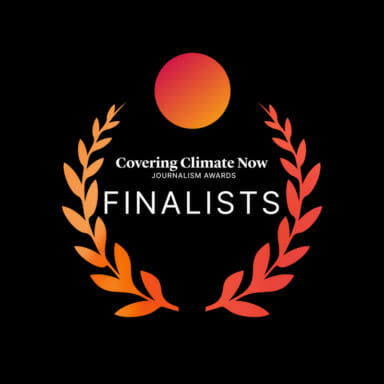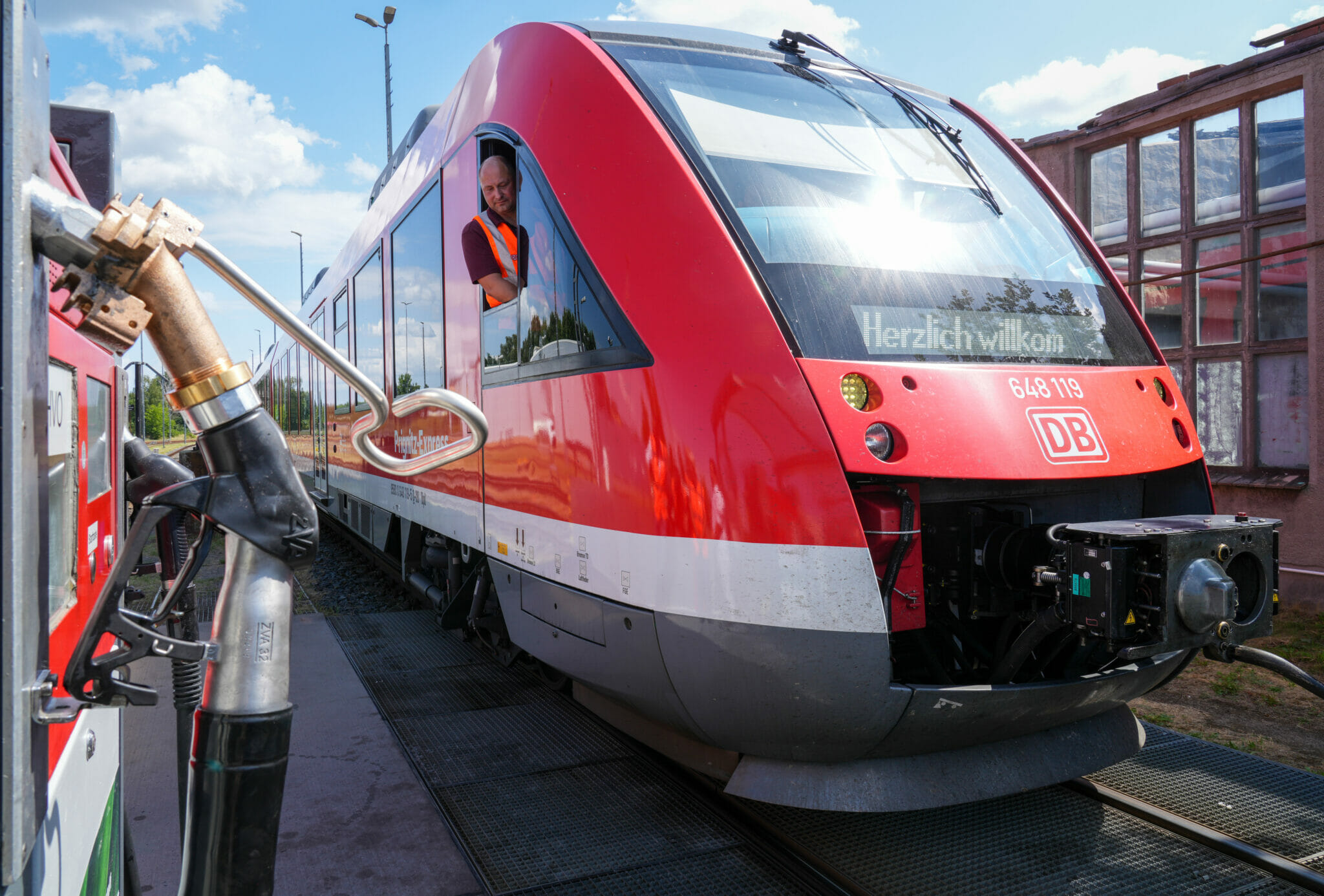When John Kerry, the US special presidential envoy for climate, arrived in Beijing on Tuesday, a weather station in western China recorded a staggering 52.2 degrees Celsius temperature, an all-time record. Globally, hundreds of millions of people are enduring similarly brutal heat. Media coverage has been extensive, and the best of it has made the climate connection, explaining that the heat and other extreme weather blasting much of the world now (e.g., drenching downpours in Vermont and Japan, unprecedented drought in Uruguay and Argentina) is driven by climate change.
It’s important, though, that audiences also hear the other half of the story — that there are solutions to this worsening crisis. As the latest IPCC report documented, humanity already possesses the technologies needed to limit temperature rise to 1.5 degrees C. Expanding solar and wind energy, stopping deforestation, improving energy efficiency, and slashing methane emissions are four of the most potent solutions. What’s been lacking, the Guardian’s Damian Carrington wrote about the IPCC’s findings, is “the political will to push aside vested interests and rapidly pursue the policies that will work.”
Arguably the single most important step is to stop burning fossil fuels. Again, the best extreme weather reporting has also made this version of the climate connection clear to audiences. The CBS News affiliate station in Philadelphia explained that “the emissions from our cars and factories are changing our climate by trapping in heat and making our planet warmer.” Scientists say the planet “will continue to grow hotter until humans essentially stop burning oil, gas and coal,” the New York Times reported.
From that foundation, climate solutions reporting then can explore and interrogate the best options for replacing fossil fuels. Examples abound. In transportation, solutions include switching to electric vehicles and making mass transit more convenient and affordable, even free. Farmers can shift from carbon-intensive monocropping to regenerative forms of agriculture that store carbon in the soil, boosting crop yields as well as resilience to the droughts that climate change is increasingly unleashing.
Solutions reporting can also shed light on policies or technologies that in fact may not be much of a climate solution. Last Friday, the European Union and nations including Germany, France, Chile, New Zealand, the Marshall Islands, and Micronesia, warned against overreliance on carbon capture technology. That technology captures CO2 emissions before they leave a factory’s or a power plant’s smokestack and then stores them where they can’t overheat the atmosphere (for example, underground). Such technologies, which have yet to succeed commercially, “are no substitute for a drastic cut in fossil fuels and their use should be limited,” Reuters wrote, summarizing the EU’s statement.
These are dark days in the climate story, as more and more people around the world are coming to realize. Especially in dark times, people also need to see the light. Solutions to the climate crisis — abundant, commonsensical, urgently needed — are that light.
From Us
Threads. Like many of you, we’re giving Threads a go: You can find us here. Also, be sure to follow us on LinkedIn, Twitter, Instagram, and YouTube.
The Finalists: Long-form Audio
We’ll be previewing Covering Climate Now Journalism Award finalists’ stories over the next few months. 
Need something to listen to on a lengthy journey this year? Check out our long-form audio finalists: Explore the human challenges solar farms pose in Ohio; the high cost of climate change and some solutions in rural California communities; the under-reported connection between biofuels, high food prices, and food scarcity in a story that ranges from the US to Kenya to Germany; and the devastating physical and mental aftermath of hurricanes in Ironton, one of Louisiana’s oldest Black towns. Listen to the long-form audio finalists.
Noteworthy Stories
Unprotected workers. Forty-four US states have no regulations on shade, rest, or water at work, which is especially harmful for people laboring outdoors as temperatures soar (and Texas governor Greg Abbott recently cut water breaks for construction workers). The US Occupational Safety and Health Administration is working on heat protections for workers, but it could take years to complete the rulemaking. By Mary Whitfill Roeloffs at Forbes…
- Extreme heat led Amazon workers to strike over working conditions, and UPS drivers may do the same.
- The Natural Resources Defense Council tracks occupational heat standards and estimates the number of workers at highest risk of heat-related harm by US state.
Climate visit. After a visit to Beijing to repair relations, US climate envoy John Kerry said that more work is needed between China and the US on climate issues. “If we can come together over these next months leading up to COP28, which will be the most important since [the] Paris [Agreement], we will have an opportunity to be able to make a profound difference on this issue,” Kerry told Chinese vice-president, Han Zheng. By Valerie Volcovici and David Stanway at Reuters…
EU climate win. The European Union’s parliament narrowly backed a major plan to protect nature and combat climate change as the bloc aims to become the leading authority on all climate matters worldwide. The plan aims to set binding targets for restoring specific habitats and species, covering at least 20% of the EU’s land and sea areas by 2030. By Raf Cassert at the Associated Press…
Office space. In areas like Arlington, Va., and Calgary, Alberta, farmers are transforming empty office buildings into indoor urban farms, using existing air conditioning, heating, and ventilation systems to grow food. Vertical farming offers consistent year-round production and the potential to provide fresh produce in areas with little food production or access to healthy foods. By Ciara O’Brien by Modern Farmer…
ZEROgrid. To help speed up the clean energy transition, big corporate clean energy buyers like General Motors, Walmart, and Meta are working with the nonprofit think tank RMI on the Zero Emissions, Reliability Optimized Grid (ZEROgrid) initiative. They say their aim is to build a comprehensive new framework “to accelerate the transition to a reliable and affordable zero-emissions electric grid.” By Jeff St. John at Canary Media…
Resources
US state action. The US Climate Alliance, a coalition of 25 US governors, launched a climate policy database that provides an overview of state-led climate action in areas including electricity generation, climate finance, and just transition/equity.
Pitching you. If you’re a journalist with climate expertise, you might consider pitching yourself to the media for interviews, which can increase exposure for your work. The Open Notebook offers advice on what to consider before pitching yourself, and how to prepare.
Via Twitter
In conjunction with last week’s press briefing co-hosted by CCNow and Climate Action Against Disinformation, a coalition of NGOs tackling mis- and disinformation on climate, we prepared a graphic series highlighting tips for journalists on how to combat climate misinformation in your work.
Now more than ever, journalists need to be aware of coordinated efforts to misinform the public on climate change. We partnered with @CAADcoalition to produce this graphic series highlighting 7 tips for combatting climate change. 🧵 pic.twitter.com/u2sTpcfPQh
— Covering Climate Now (@CoveringClimate) July 12, 2023
Industry News
Media disconnect. Just 7 out of 115 segments about the wildfire smoke from Canada that aired in the US between June 5 and 9 responsibly mentioned fossil fuels as a contributing factor without promoting climate denial, according to an analysis by the media watchdog FAIR. “By disconnecting climate change causes and consequences, media outlets shield the fossil fuel industry and the politicians who aid and abet them from accountability, and avoid discussions about urgently needed action,” said FAIR’s Olivia Riggio.
Climate and health. Grist and the Associated Press have launched “Climate Connections,” a six-story series on climate change and disease, which will be available for syndication.
- Grist makes most of their stories available to republish so that their journalism can “reach audiences far and wide.” They are also interested in pursuing partnerships for co-reporting and co-publishing. Learn more.
Jobs, etc.
Jobs. CBS News is hiring a meteorologist. CBS Mornings is hiring a weather producer. The Houston Chronicle is recruiting a weather reporter/producer. Audubon Magazine is hiring an associate editor.
Pitches. Imagine5 is looking for freelancers based in North America with experience producing constructive climate journalism. Reach out to robert@imagine5.com with samples of your work.
Awards. Journalists from Latin America are invited to submit their work for the Lincoln Prize for Journalism on Urban Policy, Sustainable Development and Climate Change. Apply by September 10.
COP28 fellowship. Climate Tracker is offering two in-person and two virtual fellowships to cover COP28 in Dubai, from November 30 – December 12 to African journalists from 18-35 years old. Apply by August 3.
